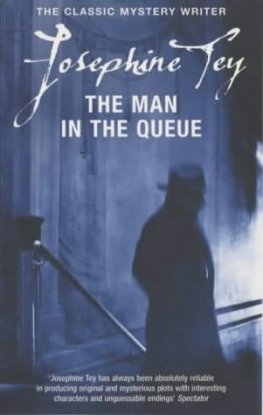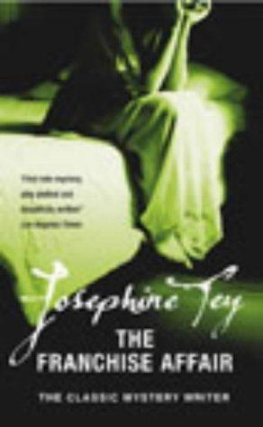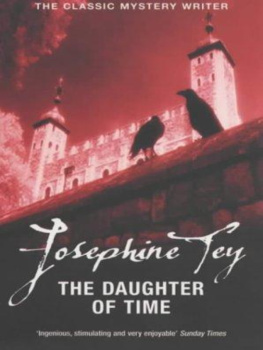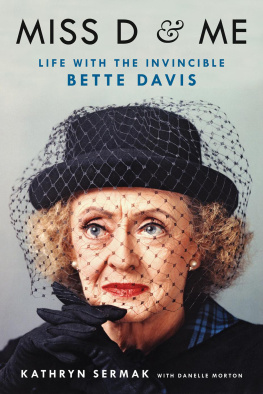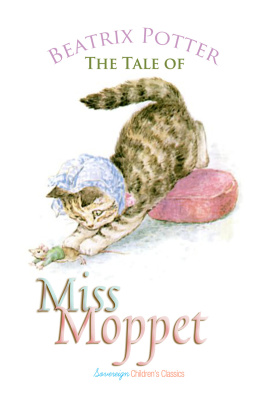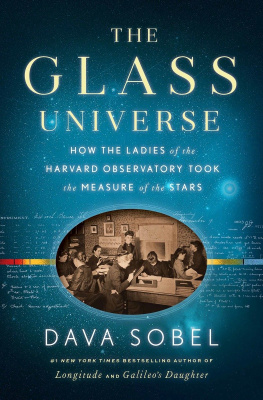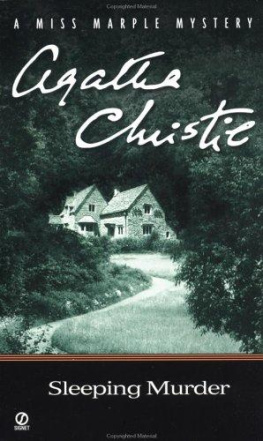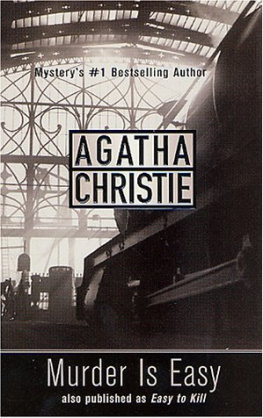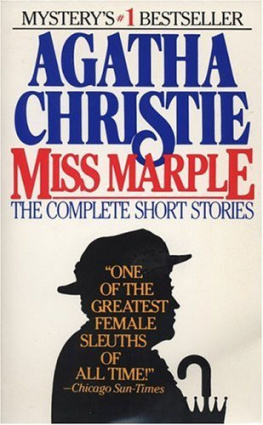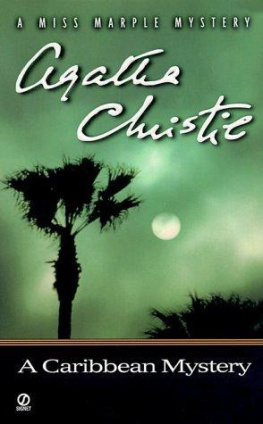Josephine Tey - Miss Pym Disposes
Here you can read online Josephine Tey - Miss Pym Disposes full text of the book (entire story) in english for free. Download pdf and epub, get meaning, cover and reviews about this ebook. year: 1998, publisher: Touchstone, genre: Art. Description of the work, (preface) as well as reviews are available. Best literature library LitArk.com created for fans of good reading and offers a wide selection of genres:
Romance novel
Science fiction
Adventure
Detective
Science
History
Home and family
Prose
Art
Politics
Computer
Non-fiction
Religion
Business
Children
Humor
Choose a favorite category and find really read worthwhile books. Enjoy immersion in the world of imagination, feel the emotions of the characters or learn something new for yourself, make an fascinating discovery.

- Book:Miss Pym Disposes
- Author:
- Publisher:Touchstone
- Genre:
- Year:1998
- Rating:4 / 5
- Favourites:Add to favourites
- Your mark:
- 80
- 1
- 2
- 3
- 4
- 5
Miss Pym Disposes: summary, description and annotation
We offer to read an annotation, description, summary or preface (depends on what the author of the book "Miss Pym Disposes" wrote himself). If you haven't found the necessary information about the book — write in the comments, we will try to find it.
Miss Pym Disposes — read online for free the complete book (whole text) full work
Below is the text of the book, divided by pages. System saving the place of the last page read, allows you to conveniently read the book "Miss Pym Disposes" online for free, without having to search again every time where you left off. Put a bookmark, and you can go to the page where you finished reading at any time.
Font size:
Interval:
Bookmark:
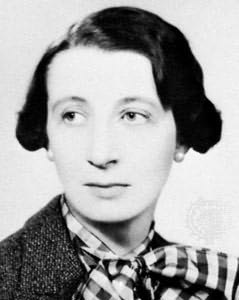 Josephine Tey was a pseudonym used by Elizabeth Mackintosh (25 July 189613 February 1952) a Scottish author best known for her mystery novels.
Josephine Tey was a pseudonym used by Elizabeth Mackintosh (25 July 189613 February 1952) a Scottish author best known for her mystery novels.
Mackintosh was born in Inverness, and attended a physical training college in Birmingham before becoming a teacher. Her literary career began when she was forced to give up regular work in order to care for her invalid father.
In five of the mystery novels she wrote under the name of Josephine Tey, the hero is Scotland Yard Inspector Alan Grant (he appears in a sixth, The Franchise Affair, as a minor character). The most famous of these is The Daughter of Time, in which Grant, laid up in hospital, has friends research reference books and contemporary documents so that he can puzzle out the mystery of whether King Richard III of England murdered his nephews, the Princes in the Tower. Grant comes to the firm conclusion that King Richard was totally innocent of the death of the Princes. (The novel has influenced later mystery writers, most notably Barbara Mertz, who writes under the name "Elizabeth Peters". Mertz refers explicitly to Tey in "The Murders of Richard the Third," which sets a country-house murder mystery among a group who believe that Richard III was innocent.)
The Franchise Affair also has a historical context: although set in the 1940s, it is based on the 18th-century case of Elizabeth Canning. The Daughter of Time was the last of her books published during her lifetime. A further crime novel, The Singing Sands, was found in her papers and published posthumously.
As Gordon Daviot she wrote about a dozen one-act plays and another dozen full-length plays, but only four of them were produced during her lifetime. Richard of Bordeaux was particularly successful, running for fourteen months and making a household name of its young leading man and director, John Gielgud. Proceeds from Tey's estate, including royalties from her books, were assigned to the National Trust.
Tey appears as a main character in An Expert In Murder (Faber 2008) by Nicola Upson, a detective story woven around the original production of Richard of Bordeaux. The second novel in the series, Angel with Two Faces, was published in 2009; further novels are planned. Tey is mentioned in the 1982 Stephen King novella, Apt Pupil.
Source: Wikipedia
(1946)
by
A bell clanged. Brazen, insistent, maddening.
Through the quiet corridors came the din of it, making hideous the peace of the morning. From each of the yawning windows of the little quadrangle the noise poured out on to the still, sunlit garden where the grass was grey yet with dew.
Little Miss Pym stirred, opened one doubtful grey eye, and reached blindly for her watch. There was no watch. She opened the other eye. There seemed to be no bedside table either. No, of course not; now she remembered. There was no bedside table; as she had found last night. Her watch had had of necessity to be put under her pillow. She fumbled for it. Good heavens, what a row that bell was making! Obscene. There seemed to be no watch under the pillow. But it must be there! She lifted the pillow bodily, revealing only one small sheer-linen handkerchief in a saucy pattern of blue-and-white. She dropped the pillow and peered down between the bed and the wall. Yes, there was something that looked like a watch. By lying flat on her front and inserting an arm she could just reach it. Carefully she brought it up, lightly caught between the tips of first and second fingers. If she dropped it now she would have to get out of bed and crawl under for it. She turned on her back with a sigh of relief, holding the watch triumphantly above her.
Half-past five, said the watch.
Half-past five!
Miss Pym stopped breathing and stared in unbelieving fascination. No, really, did any college, however physical and hearty, begin the day at half-past five! Anything was possible, of course, in a community which had use for neither bedside tables nor bedside lamps, but-half-past five! She put the watch to her small pink ear. It ticked faithfully. She squinted round her pillow at the garden which was visible from the window behind her bed. Yes, it certainly was early; the world had that unmoving just-an-apparition look of early morning. Well, well!
Henrietta had said last night, standing large and majestical in the doorway: "Sleep well. The students enjoyed your lecture, my dear. I shall see you in the morning;" but had not seen fit to mention half-past-five bells.
Oh, well. It wasn't her funeral, thank goodness. Once upon a time she too had lived a life regulated by bells, but that was long ago. Nearly twenty years ago. When a bell rang in Miss Pym's life now it was because she had put a delicately varnished finger-tip on the bell-push. As the clamour died into a complaining whimper and then into silence, she turned over to face the wall, burrowing happily into her pillow. Not her funeral. Dew on the grass, and all that, was for youth: shining resplendent youth; and they could have it. She was having another two hours' sleep.
Very childlike she looked with her round pink face, her neat little button of a nose, and her brown hair rolled in flat invisible-pinned curls all over her head. They had cost her a spiritual struggle last night, those curls. She had been very tired after the train journey, and meeting Henrietta again, and the lecture; and her weaker self had pointed out that she would in all probability be leaving after lunch on the morrow, that her permanent wave was only two months old, and that her hair might very well be left unpinned for one night. But, partly to spite her weaker self with whom she waged a constant and bitter war, partly so that she might do Henrietta justice, she had seen to it that fourteen pins were pressed to their nightly duty. She was remembering her strong-mindedness now (it helped to cancel out any twinge of conscience about her self-indulgence this morning) and marvelling at the survival of that desire to live up to Henrietta. At school, she, the little fourth-form rabbit, had admired the sixth-form Henrietta extravagantly. Henrietta was the born Head Girl. Her talent lay exclusively in seeing that other people employed theirs. That was why, although she had left school to train in secretarial work, she was now Principal of a college of physical culture; a subject of which she knew nothing at all. She had forgotten all about Lucy Pym, just as Lucy had forgotten about her, until Miss Pym had written The Book.
That is how Lucy herself thought of it. The Book.
She was still a little surprised about The Book herself. Her mission in life had been to teach schoolgirls to speak French. But after four years of that her remaining parent had died, leaving her two hundred and fifty pounds a year, and Lucy had dried her eyes with one hand and given in her resignation with the other. The Headmistress had pointed out with envy and all uncharitableness that investments were variable things, and that two hundred and fifty didn't leave much margin for a civilised and cultured existence such as people in Lucy's position were expected to live. But Lucy had resigned all the same, and had taken a very civilised and cultured flat far enough from Camden Town to be nearly Regents Park. She provided the necessary margin by giving French lessons now and then when gas bills were imminent, and spent all her spare time reading books on psychology.
She read her first book on psychology out of curiosity, because it seemed to her an interesting sort of thing; and she read all the rest to see if they were just as silly. By the time she had read thirty-seven books on the subject, she had evolved ideas of her own on psychology; at variance, of course, with all thirty-seven volumes read to date. In fact, the thirty-seven volumes seemed to her so idiotic and made her so angry that she sat down there and then and wrote reams of refutal. Since one cannot talk about psychology in anything but jargon, there being no English for most of it, the reams of refutal read very learnedly indeed. Not that that would have impressed anyone if Miss Pym had not used the back of a discarded sheet (her typing was not very professional) on which to write:
Font size:
Interval:
Bookmark:
Similar books «Miss Pym Disposes»
Look at similar books to Miss Pym Disposes. We have selected literature similar in name and meaning in the hope of providing readers with more options to find new, interesting, not yet read works.
Discussion, reviews of the book Miss Pym Disposes and just readers' own opinions. Leave your comments, write what you think about the work, its meaning or the main characters. Specify what exactly you liked and what you didn't like, and why you think so.

